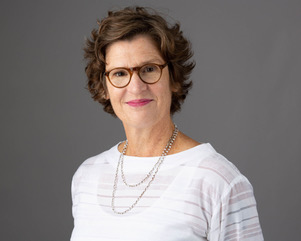Authored by Jennifer Howe, L.C.S.W.
Publisher’s note: This is the first in a series of three blogs written by graduates of the CFC Post-Graduate Training Program.
I thought it would be a relatively straight-forward task to describe the impact the training program has had on my life and my clinical practice, but that was foolish, considering Bowen theory requires most of us, and certainly me, to rethink much of what I had learned in my family and professional training.
I came into the training program after about 6 years in one of the Center’s “Family of Origin” groups; these groups consist of monthly meetings where we read and discuss a chapter on Bowen theory, then observe the facilitator work with a member of the group one on one, observing their family process, alternating through members each month. This provided an opportunity to both observe and participate in the process of using the theory to understand our lives and family. In the training program we also participated in this one on one examination of our family process, but this was augmented by the monthly day long focus on the Bowen literature with discussion. After years of the two-hour monthly meeting, it was a distinctive pleasure to devote an entire day to thinking about and discussing Bowen Theory.
What seems so unique to Bowen Theory, and so foreign to most other behavioral perspectives, is the deep respect, curiosity, and most importantly, neutrality about the instinctual, primal drives motivating human behavior. The unyielding focus on facts and the primacy of the nuclear family to continue to shape our life course, along with the crucial recognition of the place of triangles and the role of emotional contagion, provide a very different way to think about our families and the people we work with. Also, unlike most clinical training, this one requires one to work on one’s self FIRST, realizing that clinicians can never do with clients what they cannot do for themselves and with their own families.
This training, like the theory, provides no easy answers. Bowen theory is not a “how to” technique. You will not leave this with a handy set of protocols to use with your clients. Rather you will leave with a better set of questions. Bowen theory has provided me a roadmap for working with my clients and family that many of my colleagues never receive. I am immensely grateful that, over and over, this training and this theory guide me towards an ever deepening respect and appreciation for the varied and creative ways we humans make a life for ourselves. It has given me a way to understand the role of a multitude of variables in the course of a human life. It continues to guide me to stop over- functioning in my family, and with my clients, and provides a theoretical framework that gives me the courage to continue to probe the family and professional areas that scare and challenge me.




Leave a Reply